Discover the best cancer hospitals in the world through our blog, which includes 30+ carefully selected facilities. We have picked top hospitals that use the latest technology. Know about their ongoing research projects, successful patient treatment, number of beds, and oncologists available to treat your cancer disease.
Are you or someone you care about dealing with cancer?
Finding the right hospital is really important during this tough time because some places have better ways to treat cancer. In some countries, doctors use new technologies and special treatments that might not be available everywhere. People often travel to these locations to receive better care, especially for cancer. So, if you are in search of the best cancer hospitals in the world, you’re at the right place.
Let’s look at why it’s important to choose the best cancer hospital and how to travel to these world-class medical centers, where expertise and compassion come together for your well-being.
List Of Best Cancer Hospitals In The World Providing Top-Notch Cancer Care
1. University of Texas M.D. Anderson Cancer Center Houston, Texas, United States
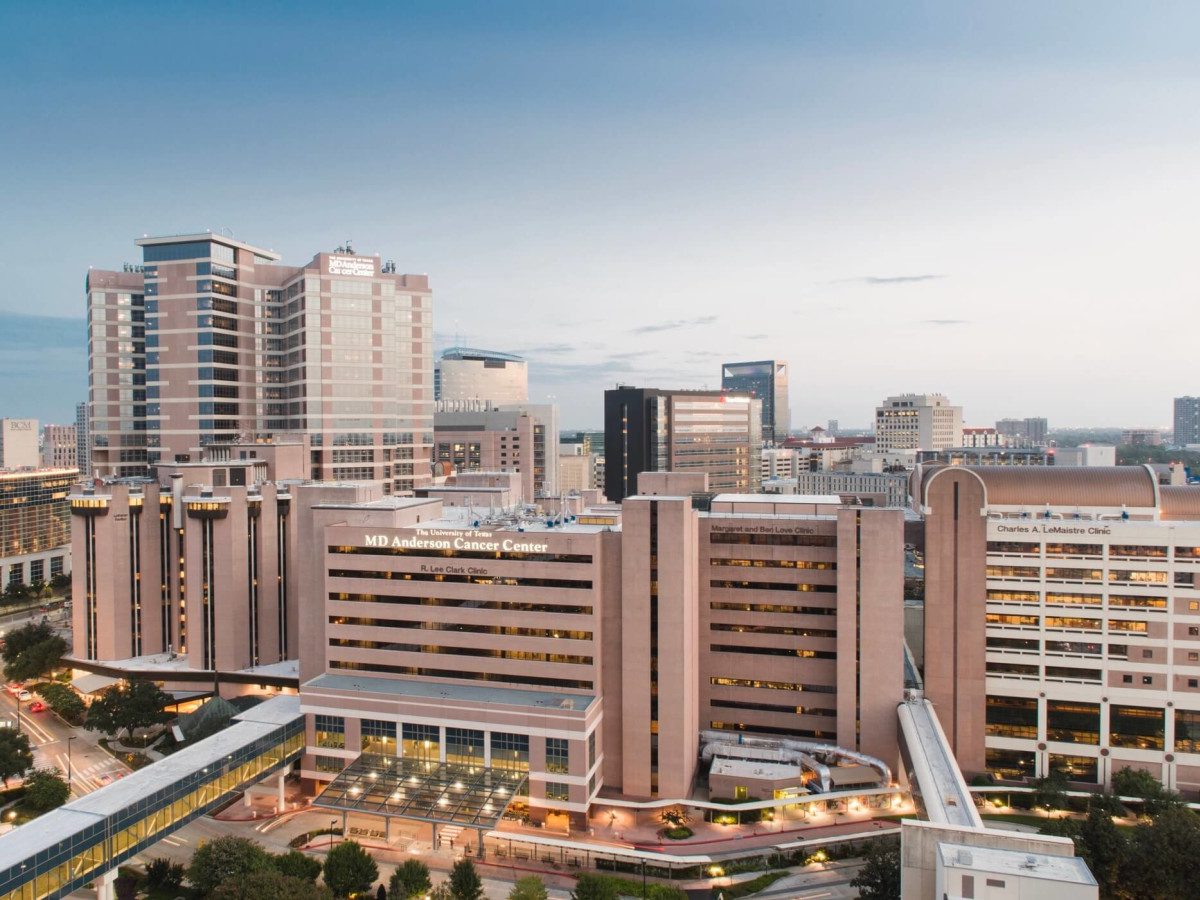
Website Address: https://www.mdanderson.org/
Location : 1515 Holcombe Blvd, Houston, TX 77030, USA
The use and advancement of state-of-the-art diagnostic technologies is world-acclaimed by MD Anderson. That helps doctors recognize the particular cancer of each patient and formulate a personalized treatment plan according to individual needs. The United States has ranked MD Anderson as the top cancer hospital in the world. “Best Hospitals” by News & World Report.
One of the greatest strengths of MD Anderson is its ability to turn the most promising laboratory discoveries of today into the modern, more efficient, and less stressful therapies of tomorrow. Over the years, MD Anderson has discovered myriad medical advancements. By obtaining not just the best therapies to depreciate or kill their cancer, MD Anderson patients benefit from the study.
New and ingenious treatments are normally available several years before they become commonplace in the culture at MD Anderson. They integrate state-of-the-art patient treatment in their clinical trials, thus estimating the latest developments in cancer medicine. For problematic or combative tumors, they often provide therapeutic options.
MD Anderson leads in the number of research grants received by the National Cancer Institute. They can help patients recover from illness and prevent cancer from recurring by researching how cancer starts and reacts to different forms of treatment. Because of all the reasons above, this cancer center can easily be the best cancer hospital in the world.
Read This : Getting Cancer Treatment In China Without Breaking The Bank: A Guide For Those Who Need It Most
2. Memorial Sloan-Kettering Cancer Center, New York, NY, United States
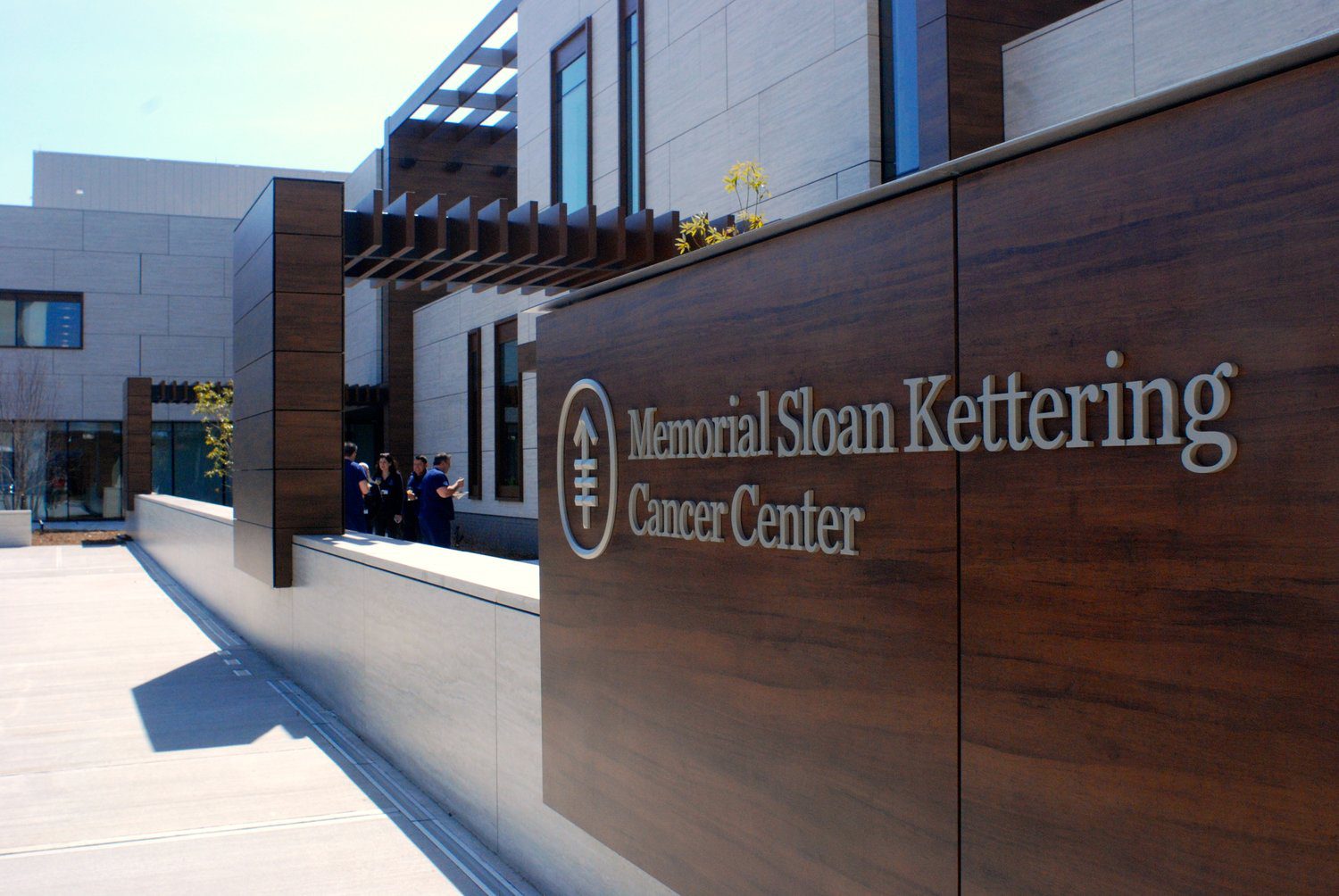
Website Address: https://www.mskcc.org/
Location: 1275 York Ave, New York, NY 10065, United States
On August 8, 1945, the Sloan-Kettering Institute for Cancer Research (SKI) was founded.
The institute’s belief is that the best approach to accelerating cancer treatment progress is to let scientists explore the unknown.
SKI is distinguished by its:
world-renowned faculty
cutting-edge technological resources
relatively small size and open academic community
extensive collaboration between scientists and clinicians
Within the overarching association of scholars, physicians, and researchers that make up MSK, SKI exists as a perspicuous organization. There is more than 100 paramedic laboratory personnel at the Sloan Katterring Institute, 400 post-doctoral research scientists, and more than 300 Ph.D. / MD / graduates. The institute maintains a friendly friendship with Weill Cornell Medicine and Rockefeller University neighbors.
SKI scientists have discovered cancer-related genes, unraveled signaling pathways that underlie the growth and division of cells, and identified the types of cells involved in immune responses mounting and repressing. SKI research, from chemotherapy to targeted therapy to immunotherapy, has also been a driver of clinical developments in cancer care.
Must Read: CAR T Cells Are Reshaping The Future Of Cancer Treatment!
3. Princess Margaret Cancer Centre, University Health Network, Toronto, Ontario, Canada

Website Address: https://www.uhn.ca/
Location: 610 University Ave, Toronto, ON M5G 2C4, Canada
The Princess Margaret Cancer Centre has 12 site groups and 26 specialised clinics, with over 3,000 staffs treating over 400,000 patients each year. The 850,000 square foot clinical space includes 202 hospital beds, 16 linear accelerators, a cutting-edge Magnetic Resonance-guided Radiation Therapy (MRgRT) suite, and two Leksell Gamma Knife Perfexion units, making it one of the world’s most comprehensive cancer care facilities as well as Canada’s largest radiation treatment facility.
Every day, Princess Margaret sees over 1,000 patients and can provide nearly 200,000 patients and their families with diagnostic, medication, and follow-up care every year. Princess Margaret continues to be on the frontiers of medical, surgical, and radiation oncology through ongoing research, education, and creativity, promoting the latest technologies and international best practices and setting standards for patient care.
Also Read : Is CAR T-Cell Therapy Available In India?
5. Asan medical center, Seoul, South-Korea
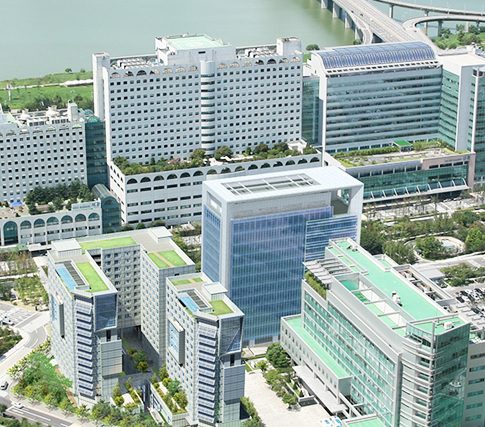
Website Address: https://eng.amc.seoul.kr/gb/lang/index.do
Location: 88 Olympic-ro 43-gil, Songpa-gu, Seoul, South Korea
By upholding the values of “Respect for Life” and “Sharing Pain with Neighbors,” Asan Medical Center has also fulfilled its social obligation as “Korea’s Most Respected Hospital.
With advanced technology and medical expertise on par with other top hospitals around the globe, Asan Medical Center is driving Korea’s medical advancement. Among the eight hospitals run by the ASAN Foundation, Asan Medical Center serves as the “parent” facility.
The ASAN Foundation has established hospitals in doctor-less areas around the country with a special focus on medical projects to enable everyone to equally access medical care.
In addition, the Asan Medical Center was established on June 23, 1989, as the mother hospital of the local medical facilities to build a top-notch facility that would raise the level of healthcare in Korea as a whole.
The objective of Asan Medical Center is to “contribute to the healthy life of humanity by delivering high-quality medical services, education, and research with unrelenting passion and challenges,” and more effort has been put into achieving this goal. Through the use of an emergency response system and criteria for evaluating medical treatment, we have innovated our entire process to turn into a patient-centric hospital. This has improved patient safety and the caliber of medical services. We also work hard to develop a distinctive culture in which patient feedback informs medical care.
6. Hospital of the University of PA Abramson Cancer Center, Philadelphia, PA, United States
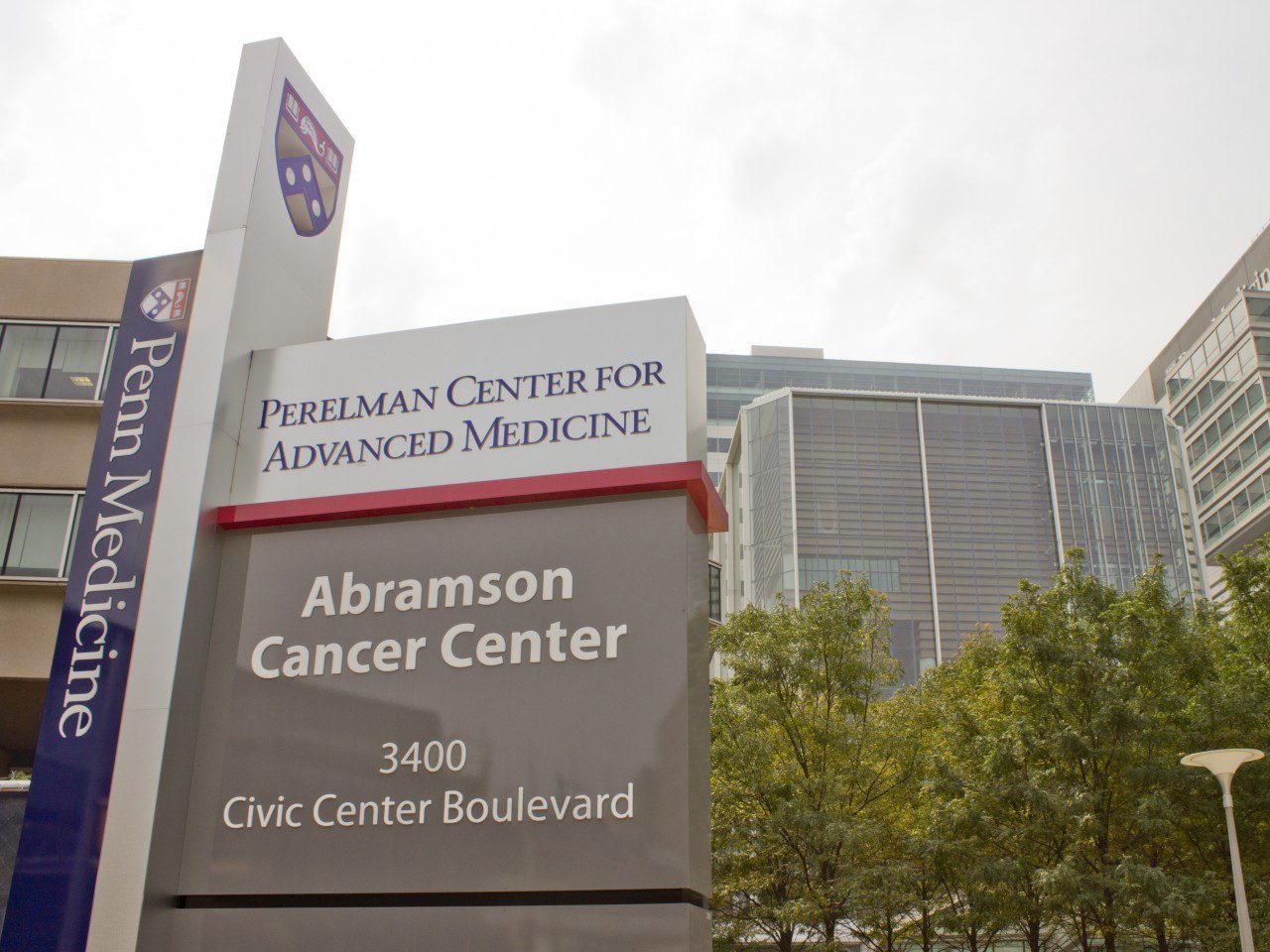
Website Address: https://www.pennmedicine.org/cancer
Location: West Pavilion, 3400 Civic Center Blvd 2nd Floor, Philadelphia, PA 19104, United States
The Abramson Cancer Center at Penn Medicine is a global leader in cancer research, patient care, and education. They have been classified as a Comprehensive Cancer Center by the National Cancer Institute (NCI) since 1973, one of 47 such centers in the United States, and our preeminent position is reflected.
They are committed to creative and compassionate cancer treatment at the Abramson Cancer Center. Their clinical service, consisting of a committed team of doctors, counselors, nurses, social workers, physical therapists, nutritionists, and coordinators of patient care, currently has 230,000 hospital visits and more than 11,800 discharges, delivering more than 37,000 chemotherapy and 66,000 radiation treatments.
Not only are they committed to delivering state-of-the-art services, with more than 8,000 participants in almost 600 clinical trials, but the new models of cancer prevention, diagnosis, and treatment are also accessible to their patients through clinical themes created through the constant pursuit of reducing the pain and suffering from cancer.
Furthermore, the Abramson Cancer Center is home to more than 400 fundamental, translational, and clinical scientists who work tirelessly to establish cancer pathogenesis. Together, our faculty is committed to enhancing cancer prevention, diagnosis, and care.
Founded in 1973, the Abramson Cancer Center provides the newest and most groundbreaking treatment developments for cancer patients. The leadership team of the Abramson Cancer Center consists of scientists, doctors, and managers who are world leaders in their respective fields. The Abramson Cancer Center of Penn Medicine is home to clinical departments and divisions that share the goal of enhancing the future of cancer treatment.
7. Sheba Medical Center, Cancer Center, Tel Aviv, Israel
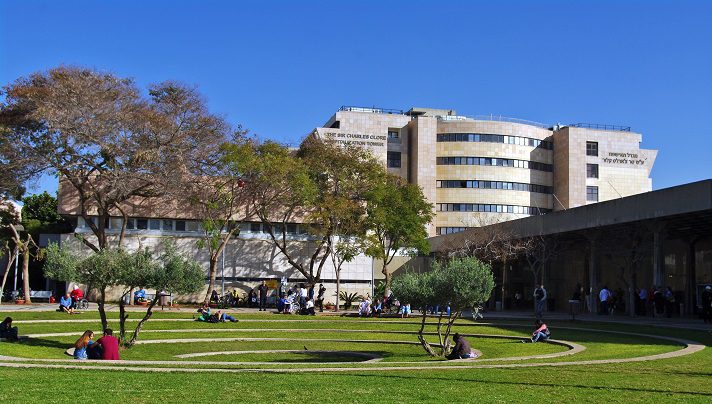
Website Address: https://www.shebaonline.org/department/cancer-treatment-in-israel-the-cancer-center/
Location: Derech Sheba 2, Ramat Gan, Israel
In addition to being part of Israel’s largest hospital, the Cancer Center at Sheba Medical Center is the absolute pioneer in cancer care in Israel.
In the battle against cancer, Sheba took a genuinely holistic approach, putting patients first and delivering many support programs for not only their medical requirements but also their psychological, social, and palliative needs.
For every patient, their guiding principles cover complete treatment. This ensures that their patients and their families, have competent specialists, and provide compassionate care. As the country’s first facility to deliver a fully holistic approach to cancer care in Israel, Tal Center for Integrative Medicine reflects this dedication. While all of their therapies are rooted in clinically validated evidence, in addition to the new, cutting-edge Western medicine, they have made alternative treatments accessible.
These complementary treatments include physiotherapy, support from nutritionists, and professional and caring nursing staff. Psychological services are also provided, as they understand that state of mind and mental health have a profound impact on physical health.
Also Read: Best hospital for CAR T Cell therapy in China
8. Roswell Park Cancer Institute, Buffalo, NY, United States
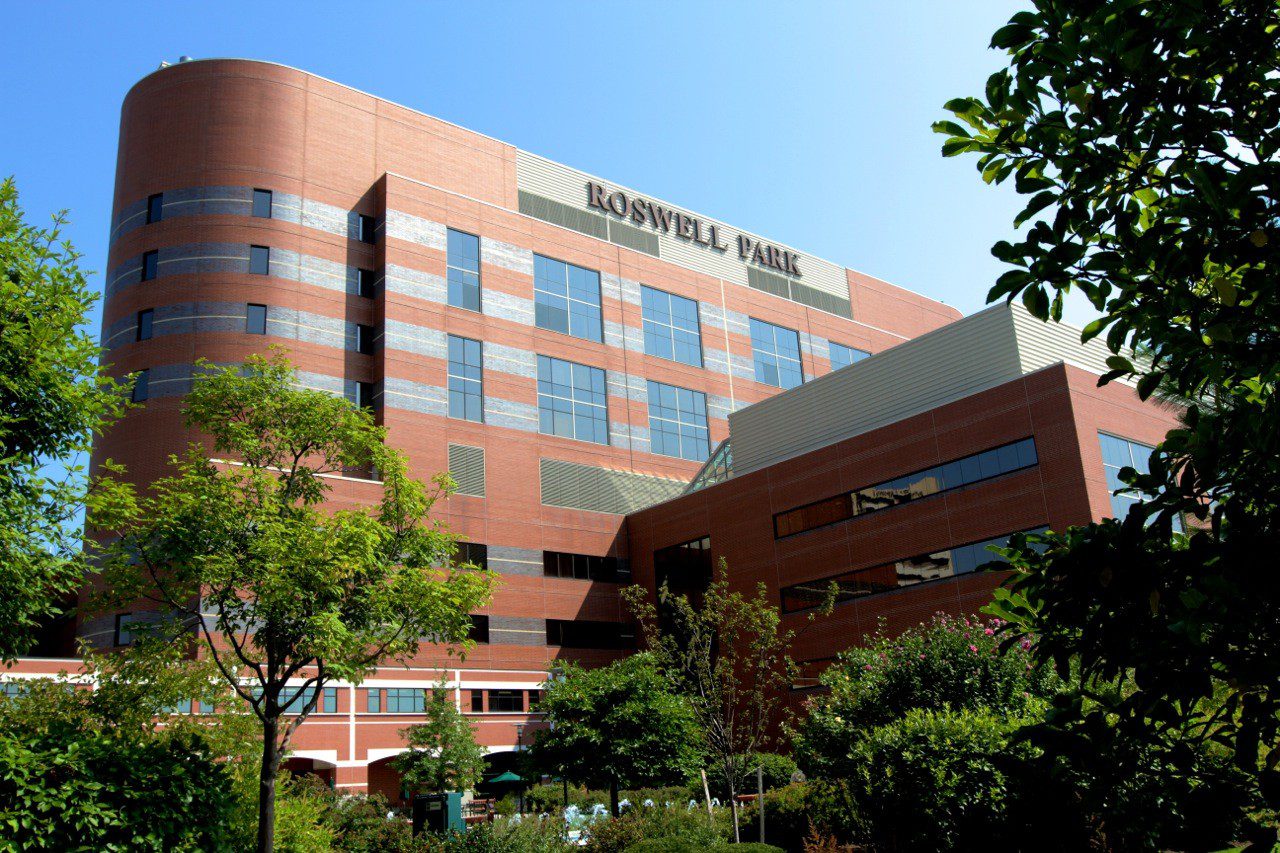
Website Address: https://www.roswellpark.org/
Location: 665 Elm St, Buffalo, NY 14203, USA
Established in 1898 as the first cancer center in the country, Roswell Park set the standard for today’s multidisciplinary approach to cancer treatment of the highest quality. Roswell Park was named the Best Cancer Hospital for 2019-20 by the U.S. News & World Report and is known for high-performing colon and lung cancer surgery.
The Roswell Park Comprehensive Cancer Center is one of a small few to hold the “Comprehensive Cancer Center” designation of the National Cancer Institute and the only one outside New York City in New York State. This designation indicates that the combined science, care, and educational services of a cancer center have weathered comprehensive peer scrutiny, met stringent national standards, and made important contributions to reducing the burden of cancer.
In 1974, Roswell Park was among the first to be accredited as a Comprehensive Cancer Center by the NCI and has since served as a national model.
Roswell Park is also part of the National Comprehensive Cancer Network (NCCN), an alliance of the leading cancer centers in the world.
9. John Hopkins Hospital, Sidney Kimmel Comprehensive Cancer Center, Baltimore, MD, United States
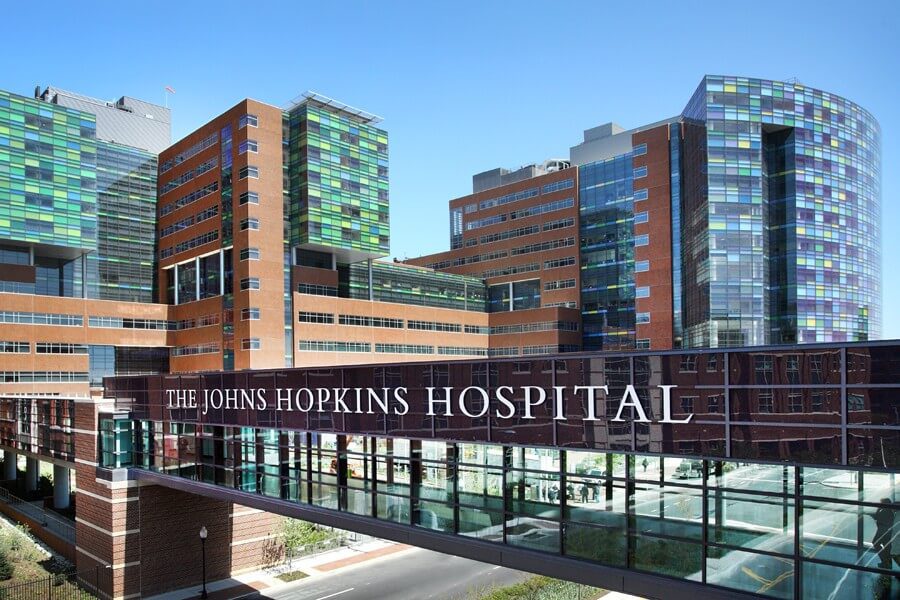
Website Address: https://www.hopkinsmedicine.org/kimmel-cancer-center
Location: 401 N Broadway, Baltimore, MD 21231, USA
Johns Hopkins is now widely associated with superior health care and research. Its medical programmes receive more fresearch funding than any other medical institution in the nation.
This Cancer Centre has been a global leader in understanding the causes of cancer and developing novel treatment approaches since it opened its doors in 1973.
The National Cancer Institute recognised the strength of our research and treatment programmes early on, making us one of the first to get comprehensive cancer centre designation and recognition as a “Centre of Excellence.”
The Johns Hopkins Kimmel Cancer Centre is actively involved in community outreach, education, prevention and control, laboratory and clinical research, and education.
Patients visiting the Sidney Kimmel Comprehensive Cancer Centre at Johns Hopkins have access to some of the most creative and advanced therapies in the world. Kimmel Cancer Centre clinicians and research scientists collaborate closely, so innovative medications and therapies produced in the lab are promptly transferred to the clinic, providing patients with cutting-edge therapeutic alternatives.
The Kimmel Cancer Centre offers a variety of specialty programmes for adults and children dealing with cancer, including as bone marrow transplantation (BMT) and new drug development. Furthermore, persons at high risk of developing breast, ovarian, colon, and other cancers can seek information about early detection, prevention, and genetic counselling from a comprehensive genetics program.
The Kimmel Cancer Center furthered its commitment to excellence in patient care and offers cancer care at many facilities throughout Maryland and the National Capital Region.
Also read: Which hospital offer CAR T Cell therapy in China?
10. Apollo Cancer Hospital & Apollo Proton Centre, Chennai, India
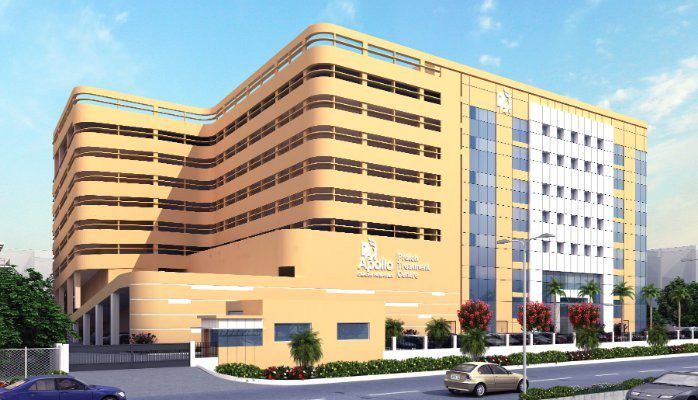
Website Address: https://www.apollohospitals.com/departments/cancer/hospitals/chennai/
Location: Apollo Proton Cancer Centre, 4/661, Dr Vikram Sarabai Instronic Estate 7th St, Dr. Vasi Estate, Phase II, Tharamani, Chennai, Tamil Nadu 600041
Apollo Cancer Centre, India’s first ISO-certified healthcare provider, is now one of the top superspecialty hospitals, providing advanced tertiary care in Oncology, Orthopaedics, Neurology & Neurosurgery, Head and Neck Surgery, and Reconstructive and Plastic surgery.
Equipped with 300 beds, the latest and the best technology, manned by a large pool of world-renowned specialists, and supported by a dedicated team of medical and paramedical professionals, Apollo Cancer Centre offers specialty healthcare of international standards with outcomes matching those of the world’s best hospitals.
The hospital provides 360-degree cancer care. The complete treatment planning system includes a Tumour Board, which is made up of experienced medical, surgical, and radiation oncologists. The Board, along with diagnostic consultants, evaluates referred cases and decides on the best course of action for each patient. The hospital is one among the few centres in India that can seek for an unrelated donor and perform transplants.
TECHNOLOGY
- 64 SLICE- PET CT scan system.
- PET CT MRI
- Cyberknife
- True Beam STX radiotherapy
- Proton therapy
- Brachytherapy
FACILITY
- 300 Beds
- Dedicated Chemotherapy Ward
- Dedicated Stem Cell Transplant Unit
- Platinum Ward Dedicated To Patient Comfort
11. Apollo Proton Cancer Centre, Chennai, India
Website Address: https://www.apollohospitals.com/proton-therapy/
Location: Apollo Proton Cancer Centre, 4/661, Dr Vikram Sarabai Instronic Estate 7th St, Dr. Vasi Estate, Phase II, Tharamani, Chennai, Tamil Nadu 600041
The Apollo Proton Cancer Centre (APCC) is a 150-bed integrated cancer hospital that provides cutting-edge comprehensive cancer treatment. It is South East Asia’s first Proton Therapy, and it marks a significant milestone in India’s effort to combat and defeat cancer. APCC, which is powered by a cutting-edge multi-room Proton Centre, is revolutionising radiation oncology not only in India but throughout the region. For almost 3.5 billion people, the hospital serves as a light of hope.
At APCC, sophisticated Proton Therapy is accompanied by a fully integrated treatment suite that includes the most advanced surgical, radiation, and medicinal cancer procedures. True to the Apollo Pillars of Expertise and Excellence, the Centre brings together a robust medical team led by some of the most prominent names in cancer care.
12. USC Norris Comprehensive Cancer Center, Los Angeles, CA, United States
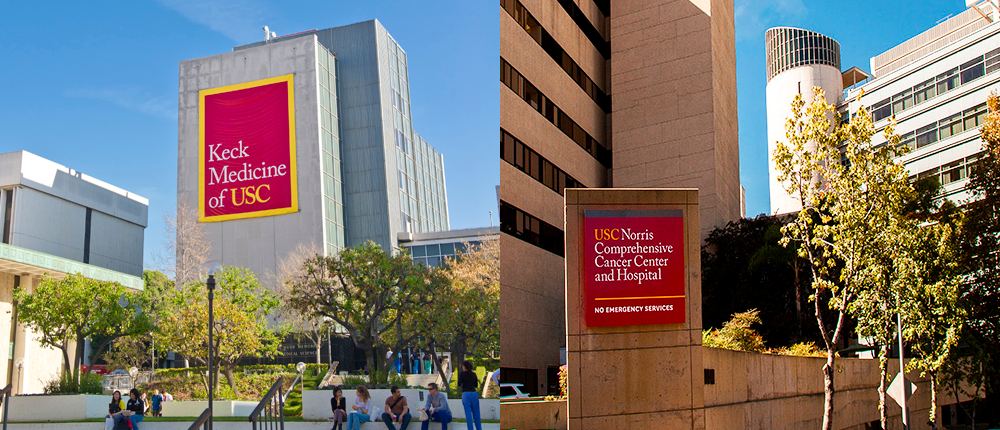
Website Address: https://uscnorriscancer.usc.edu/
Location: 1441 Eastlake Ave, Los Angeles, CA 90033, USA
The USC Norris Comprehensive Cancer Centre, which includes over 200 basic and population scientists, physicians from the Keck School of Medicine at USC, several USC professional schools/departments, and the College of Letters, Arts, and Sciences, investigates the complex origins and progression of cancer, develops prevention strategies, and searches for cures.
The National Cancer Institute (NCI) has named the USC Norris Comprehensive Cancer Centre one of the country’s 51 comprehensive cancer centres, a select group of institutions that lead in cancer treatment, research, prevention, and education.
Also read: CAR T Cell therapy hospital in Beijing
13. Tata Memorial Hospital, Mumbai, India
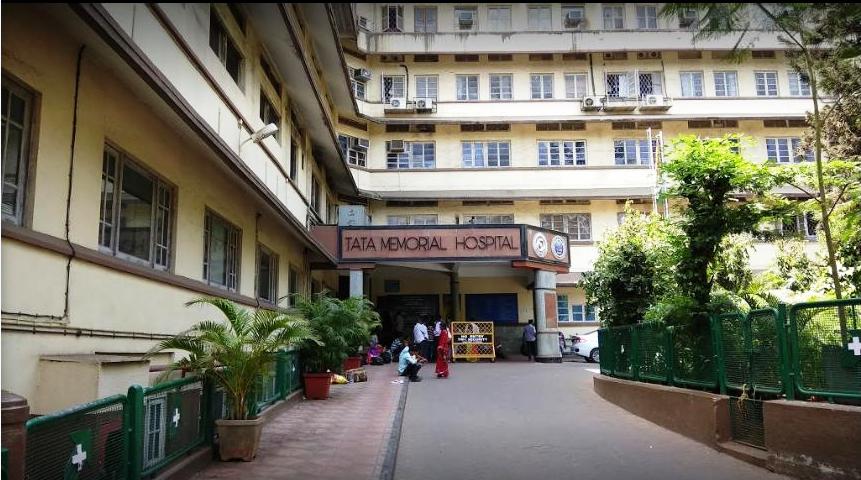
Website Address: https://tmc.gov.in/tmh/index.php/en/
Location: Homi Babha Building, Dr Ernest Borges Rd, Parel East, Parel, Mumbai, Maharashtra 400012
Tata Memorial Centre is one of the world’s oldest and largest cancer centres, with over 75 years of providing exceptional cancer care, and ground-breaking cancer research. It has expanded in size and significance throughout the years, maintaining its dominant position at the forefront of national and global cancer control efforts.
Tata Memorial Centre’s primary focus remains compassionate patient care, with eleven Disease Management Groups (or interdisciplinary teams) breaking down departmental walls to provide best treatment for all patients. This emphasis on the team approach takes advantage of the enormous experience and skill of numerous specialists, allowing patients to receive evidence-based, yet individualised care that is tailored not only to the cancer but also to the patient’s specific physical, emotional, and psychosocial requirements.
The Tata Memorial Centre’s researchers are world experts in cancer research, including basic, translational, epidemiologic, and clinical studies. TMC’s research focuses on cancer biology, large community-based screening trials for common cancers and cohort studies, neoadjuvant and adjuvant treatment, perioperative interventions, surgical trials, drug repurposing, and qualitative research to better understand the patient journey.
14. Kings College Hospital, NHS Hospital Trust, London, UK
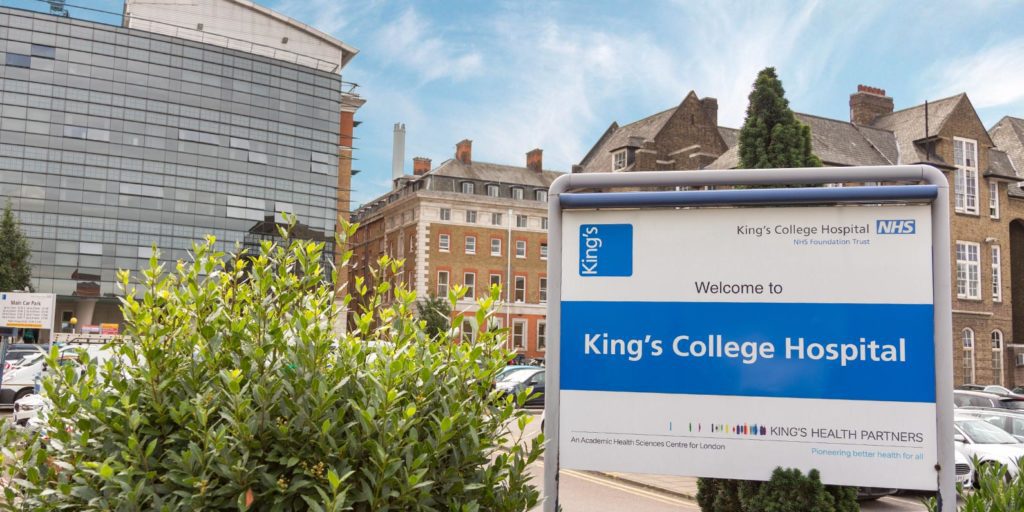
Website Address: https://www.kch.nhs.uk/services/cancer/
Location: Denmark Hill, London SE5 9RS, UK
Our specialty services are provided to patients from a wider catchment area, and we have national and international recognition for our work in liver disease and transplantation, neurosciences, haemato-oncology, and fetal medicine.
Over the last 170 years, King’s has built its reputation as a world-class hospital, with roots that lie firmly in the heart of our community. It is a top teaching hospital and a community hospital serving a diverse inner-city population.
Caring for patients from some of the most deprived communities in London, and some of the wealthiest; our world-class specialties such as diabetes, liver, and sickle cell are largely driven by the health concerns of cancer patients.
15. Wake Forest University Baptist Comprehensive Cancer Center, Winston-Salem, NC, United States
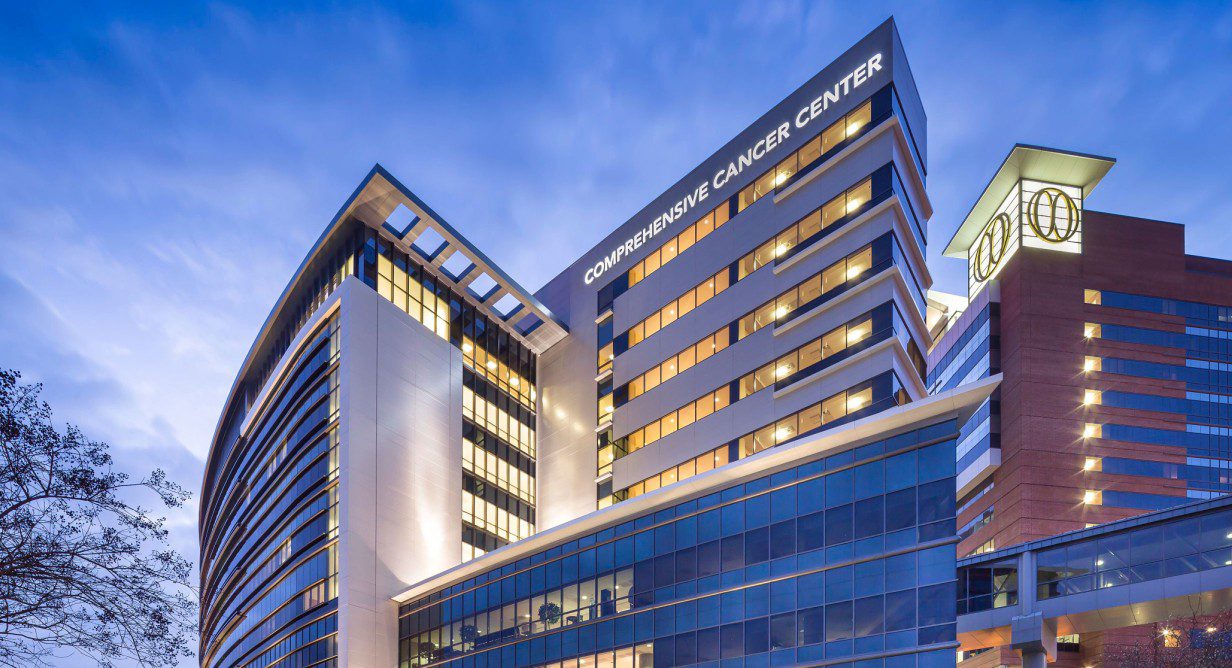
Website Address: https://www.wakehealth.edu/locations/facilities/comprehensive-cancer-center
Location: 1 Medical Center Blvd, Winston-Salem, NC 27157, United States
Wake Forest University Baptist Comprehensive Cancer Center, Winston-Salem, NC, United States
Wake Forest Baptist Medical Centre Comprehensive Cancer Centre is consistently ranked as one of the best institutes of its kind in the country. Their cancer center serves all of North Carolina, including Winston-Salem, Raleigh, and Durham, and is convenient to access for patients in South Carolina and Virginia.
The National Cancer Institute (NCI) renewed the center’s classification as a comprehensive cancer centre for another five years, making it one of three in North Carolina, one of 51 in the USA, and one of just a few to have held the designation since 1990.
The NCI designation indicates that a Comprehensive Cancer Centre satisfies the highest U.S. government standards for cancer research and care. According to studies, individuals who receive care at an NCI-designated cancer centre have a 25% higher chance of long-term survival.
The Comprehensive Cancer Centre employs 120 clinicians from several fields of cancer care, including haematology and oncology, gynecologic oncology, radiation oncology, surgical oncology, and colon and rectal surgery.
These specialists are dedicated to providing patients with advanced treatments, and clinical trials in areas such as precision medicine, cancer genomics, and immunotherapy. A variety of support programmes are also offered by the cancer centre to assist patients and their families in effectively addressing the different non-medical concerns that arise during the course of their cancer treatment.
16. Olivia Newton John Cancer and Wellness Centre, Heidelberg, VIC, Australia
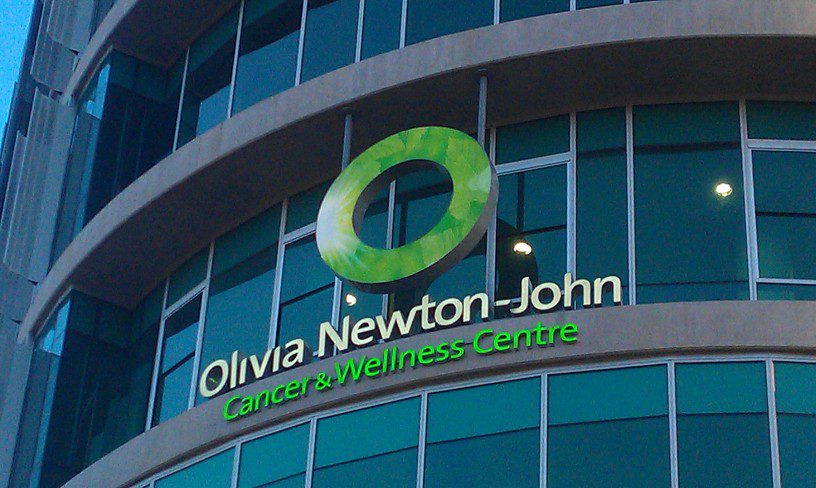
Website Address: https://www.onjcancercentre.org/
Location: 145 Studley Rd, Heidelberg VIC 3084, Australia
A collaboration between Austin Health and the Olivia Newton-John Cancer Research Institute is known as the Olivia Newton-John Cancer Wellness & Research Centre. It is a comprehensive cancer center, meaning we not only treat cancer but also carry out breakthrough research and clinical trials.
They work to help patients live better with cancer and defeat it through our world-class treatment, integrated research, leading clinical trials, and tailored wellness programs.
In 1885, the ‘Austin Hospital for Incurables’ opened its first cancer ward and as early as the 1920s the use of x-rays in the treatment of cancer was being trialed at this location. By 1935 Austin was the largest cancer hospital in Australia and in 1965 the Austin Hospital Clinical School was established, beginning Austin’s reputation as a leading centre for medical education.
As a cancer thriver, Dame Olivia Newton-John drew strength from complementary therapies that improved her well-being and maintained her positive spirit. With a champion who commits to care and well-being, it was only natural that wellness became the guiding principle behind their philosophy.
17. University Hospitals Seidman Cancer Center, Cleveland, OHIO, United States
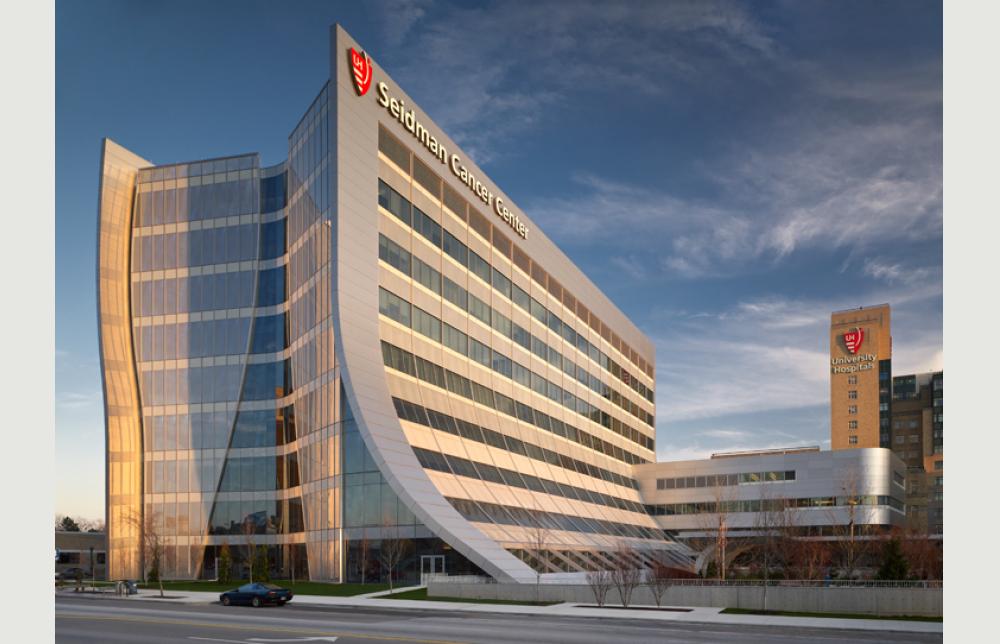
Website Address: https://www.uhhospitals.org/locations/uh-seidman-cancer-center
Location: 11100 Euclid Ave, Cleveland, OH 44106, United States
At University Hospitals Seidman Cancer Center, the team of caregivers provides the most advanced forms of cancer care, from prevention, screening, and diagnosis through treatment and survivorship. Their single disease-focused teams design personalized cancer treatment plans for every patient who entrusts their care to us.
Modern technology at University Hospitals Seidman Cancer Centre in Cleveland, Ohio, is paving the way for cancer diagnosis and treatment. It enables their skilled care teams to identify tumours sooner, more precisely target cancer cells, and carry out intricate procedures with minimally invasive methods. Their patients have access to the most cutting edge cancer treatment options available, including immunotherapy, our groundbreaking stem cell transplant programme, and the first and only proton therapy centre in northern Ohio. This centre also places a strong emphasis on precision medicine, which tailors care to each patient’s individual tumor’s genomic characteristics.
A multitude of tools are employed by the cancer specialists at UH Seidman Cancer Centre in order to identify and diagnose cancer. Cancer can be diagnosed and its stage (if it has spread to other parts of the body) can be ascertained using bloodwork, other lab tests, imaging equipment (such as CT, MRI, PET, and ultrasound), and biopsies.
Advanced diagnostic tools for cancer are also available to UH medical professionals. Using positron emission tomography (PET) and magnetic resonance imaging (MRI) technology to produce enhanced digital images and precisely locate cancer, UH was the first hospital in the United States to employ a PET/MRI scanner in a clinical environment.
18. Netherlands Cancer Institute (NKI), Amsterdam, Netherlands
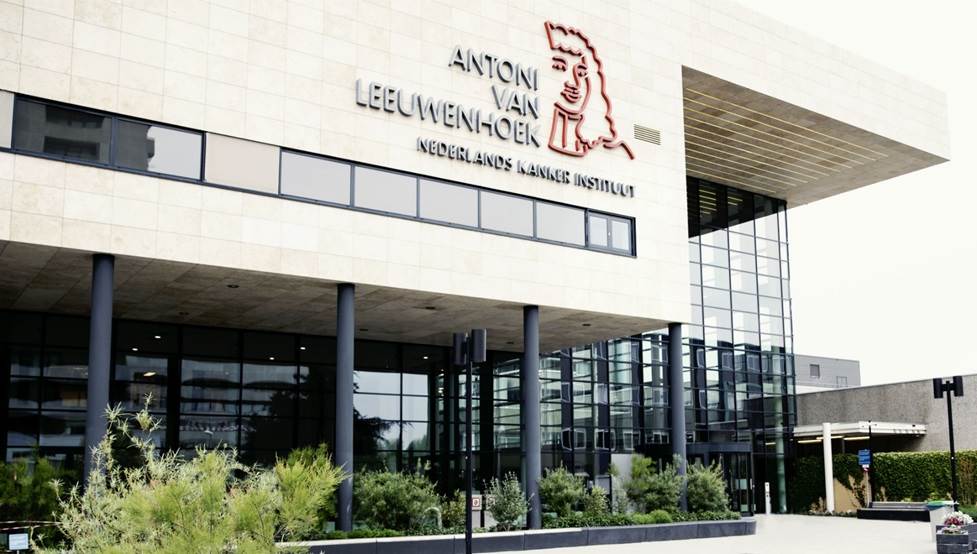
Website Address: https://www.nki.nl/
Location: Plesmanlaan 121, 1066 CX Amsterdam, Netherlands
On October 10, 1913, the Netherlands Cancer Institute was founded. The institute’s mission was to provide suitable treatment for patients with cancerous growths and to do research on cancer and related disorders.
Around 650 scientists and scientific support staff work at The Netherlands Cancer Institute these days. The Antoni van Leeuwenhoek Hospital has 185 medical specialists, 180 beds, an outpatient clinic with around 106,000 visits, 12 operating theaters, and 11 irradiation units for radiotherapy. Being the sole cancer-focused facility in the Netherlands, it continues to play a significant role as a place for clinical and scientific knowledge, research, and training on a national and worldwide scale.
Modern-day biomedical research depends on expensive equipment and techniques that can take years of practice to do well. Individual researchers need to use a wide range of techniques for their work. No one can master them all or be given the money to buy all the equipment they are likely to need.
The NKI has resolved this problem and used its funding most efficiently by creating dedicated centralized technology facilities that serve the whole Institute. All NKI scientists have direct access to these facilities. Most facilities have trained and dedicated operators that assist the researchers in doing their experiments in one of the facilities. Periodic review of the facilities ensures that they maintain a high standard.
19. Genesis Cancer Care, Sydney, NSW, Australia
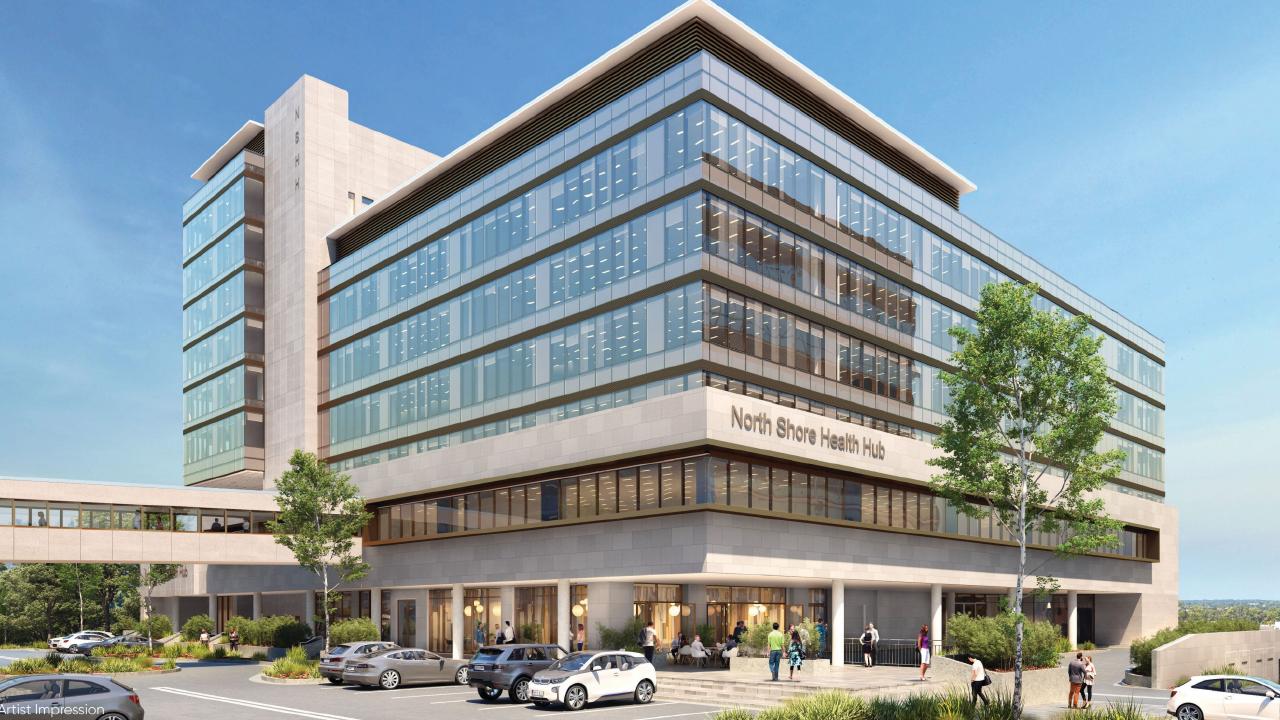
Website Address: https://www.genesiscare.com/au
Location: North Shore Health Hub, Tower A, Level 1/7 Westbourne St, St Leonards NSW 2065, Australia
Genesis Care has 2,500 highly trained healthcare professionals and support staff across Australia, the U.K., and Spain, designing innovative treatments and care for people with cancer and heart disease.
Across the world, there are more than 130 Genesis Care centers to help bring you the right care. For radiation therapy, that includes 13 centers in the UK, 21 in Spain, and 30 in Australia. The goal of Genesis Cancer care is to provide care experiences that maximise the potential for positive life outcomes.
20. Peking University Cancer Hospital & Institute, Beijing, China
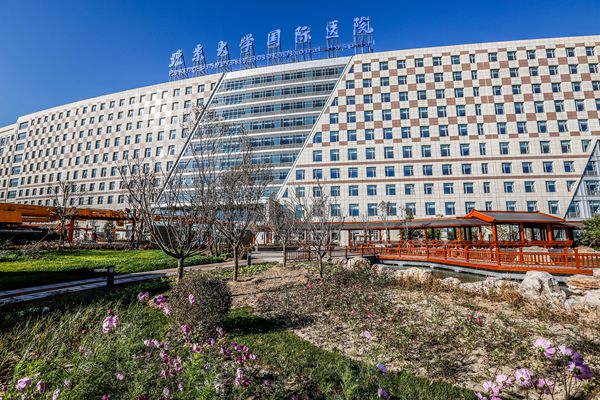
Website Address: https://www.uicc.org/membership/peking-university-cancer-hospital-and-institute
Location: X8R4+2W2, Jingyuan Rd, Haidian District, Beijing, China, 100084
Peking University Cancer Hospital (also known as the Beijing Institute for Cancer Research, Beijing Cancer Hospital, and Peking University School of Oncology) is one of China’s leading academic cancer centres. Its physicians provide the best quality health care across the hospital, and its faculty members in charge of translational research are well-known for their commitment to education and training.
Physicians at Peking University Cancer Hospital treat a broad range of cancer specialties, including esophageal carcinoma, breast, lung, colorectal, liver, esophageal carcinoma, lymphoma, melanoma, and much more. They focus on providing patient-centered medical services. Experts from a variety of fields, including pathology, radiography, oncology (cancer medicine), and surgery, make up our team.
At Peking University Cancer Hospital, research into the basic oncologic process and clinical investigation of specific cancer diseases go hand in hand. Investigations into cancer epidemiology, etiology, genetics, oncogenesis, pathogenesis experimental therapeutics, and many other fields keep Peking University Cancer Hospital at the forefront of biomedical research, driving the discoveries that lead to new ways to prevent and treat cancer.
Within its 35-year commitment to cancer prevention and treatment, Peking University Cancer Hospital devotes major efforts to improving the health care for cancer patients. There are 301 medical professionals, 52 of whom are full professors and 84 of whom are associate professors, who specialise in treating different kinds and stages of cancer. With 790 beds, 28 clinical departments, 13 paramedical departments, and a total of 24 wards, Peking University Cancer Hospital is a renowned cancer center in China devoted exclusively to cancer care, cancer education, cancer research and cancer prevention.
21. Townsville Cancer Centre, Douglas, Queensland, Australia
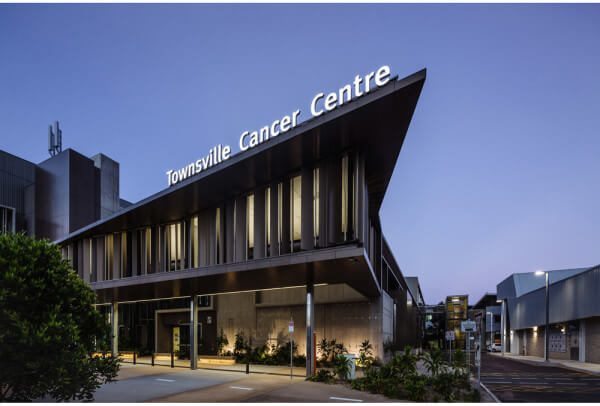
Website Address: https://www.townsville.health.qld.gov.au/services/cancer-services/adult-cancer-services/
Location: 9/13 Bayswater Rd, Hyde Park QLD 4812, Australia
The Townsville Cancer Centre is a tertiary cancer center located at Townsville University Hospital that provides comprehensive cancer care to patients from across North Queensland.
In addition to the state-of-the-art cancer facility at Townsville University Hospital, the center also provides specialist cancer services to patients in rural, remote, and Indigenous communities using telehealth technology. Medical specialists, nurses, and allied health workers make up its multidisciplinary teams, which meet frequently to discuss treatment choices for newly diagnosed cancer patients as well as to review treatment plans that are already in place for both during and after treatment.
To facilitate patient access, the Townsville Cancer Centre features a distinct entrance and a designated parking lot. Patients can also be dropped off and picked up just in front of the building.
Modern cancer care is offered to both adults and children by the Townsville Hospital and Health Service.
Their clinicians provide treatment to all but the most complex adult cancers, including blood cancers, high-dose radiation therapy treatments, tele-oncology treatments to our remote communities, and specialized pediatric oncology.
22. Adventist Hospital Oncology, Hong Kong

Website Address: https://www.hkah.org.hk/en/centers/hong-kong-adventist-hospital-oncology-center
Location: Hong Kong, Stubbs Rd, 香港司徒拔道四十號香港港安醫院低層地庫
This private hospital has been offering top-notch medical care to residents of the surrounding area, foreign patients seeking higher-quality care in Hong Kong. The Hong Kong Adventist Hospital – Stubbs Road provides patients with attentive care in a safe and comfortable environment, together with all the benefits of a high-tech medical centre, state-of-the-art technology and highly qualified staff.
The Australian Council on Healthcare Standards (ACHS) issued the facility an accreditation certificate in 2010. The hospital was accredited by the ACHS for the second time in 2014. Since 2000, the hospital has additionally been fully accredited by the Trent Accreditation Board each year.
Adventist Health is a global network of approximately 160 hospitals, including the Hong Kong Adventist Hospital – Stubbs Road. The network’s shared objective is to offer patients worldwide access to top-notch “compassionate personalised care.
23. Institut Gustave Roussy, Villejuif, France
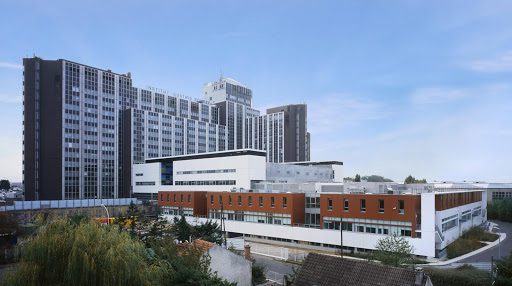
Website Address: https://www.gustaveroussy.fr/en/institute
Location: 114 Rue Edouard Vaillant, 94805 Villejuif, France
Gustave Roussy is the leading European cancer centre. It is a patient care, research, and teaching facility that can treat patients with any type of cancer.
It intends to put innovation at the centre of a human, scientific, and technical revolution in the fight against cancer.
They make use of cutting-edge research to make major discoveries, with expert team of they are establishing more individualized and less invasive medicine, administer high-quality treatment under the safest conditions.
The Institute specialises in the treatment of uncommon malignancies and complicated tumours. It treats cancer at various stages of life. It provides individualised care to its patients by combining innovation and a compassionate attitude. The treatment is crucial, but so is the overall quality of life, including physical, psychological, and social aspects.
Gustave Roussy Hospital accepts specialist referrals for complicated situations and uncommon tumours. It can apply techniques from medical oncology, chemotherapy, radiotherapy, surgery, interventional radiology, and reconstructive surgery.
24. National Cancer Center, Japan
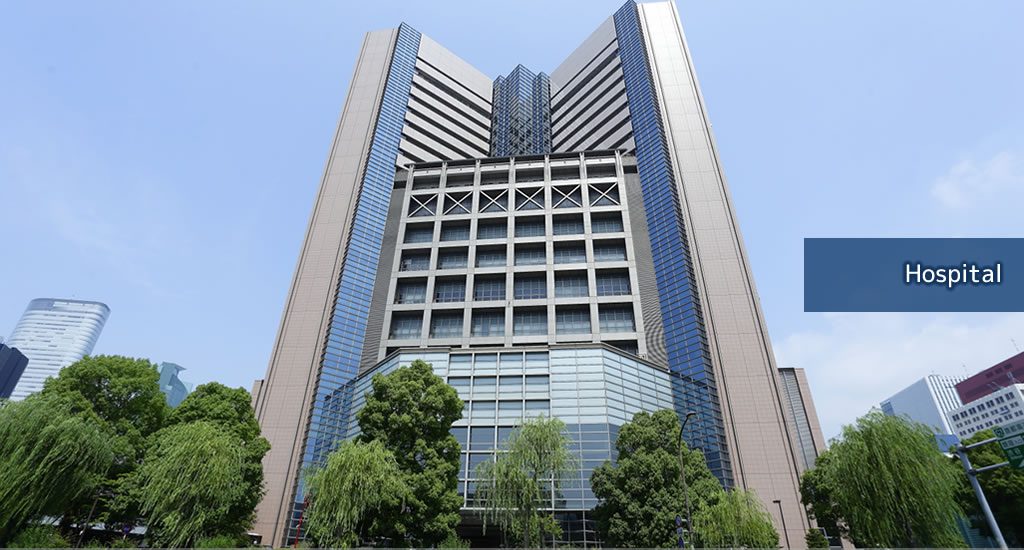
Website Address: https://www.ncc.go.jp/en/index.html
Location: 5 Chome-1-1 Tsukiji, Chuo City, Tokyo 104-0045, Japan
Founded as a hub for cancer treatment and research by the central government in 1962, the National Cancer Center has since led the field.
The Hospital (Tsukiji campus) and Hospital East (Kashiwa campus) were designated as core hospitals for clinical research in August and September of 2015, respectively, to act as a hub for clinical research and development. Since then, they have been at the forefront of world-class clinical research and investigator-initiated trials.
In addition to offering each individual cancer patient the best care possible, including genomic medicine, based on genomic and other clinical and biological information, the National Cancer Center’s mission also includes preventing the onset of cancer by identifying high-risk populations and creating and implementing successful preventative measures.
25. Parkway Cancer Centre, Singapore
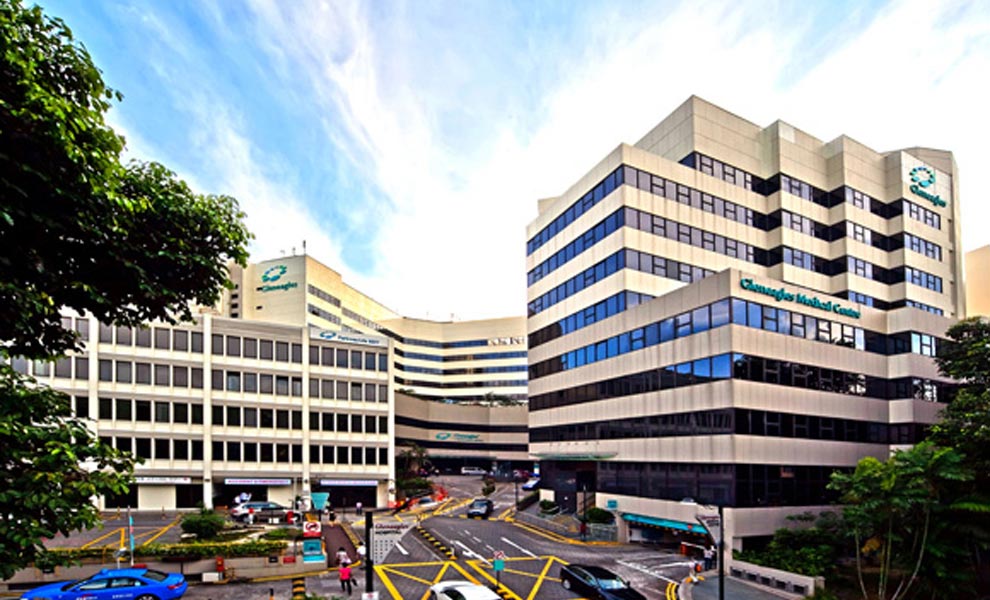
Website Address: https://www.parkwaycancercentre.com/
Location: 6A Napier Rd, Level 2 Gleneagles Hospital, Singapore 258500
Millions of people receive cancer diagnoses each year, and millions more experience life-altering effects on their friends, family, and loved ones. The bright side of this reality is that we are gradually but steadily winning the war against cancer thanks to ongoing breakthroughs in medicine and medical technology.
There is hope and Parkway Cancer Centre is committed to spreading that hope to all those who are suffering from cancer.
It houses an extensive range of cancer therapies provided by a skilled, interdisciplinary team of physicians, nurses, counsellors, and other paramedical specialists. Every day, and for every patient, their team works hard to deliver holistic cancer care in a safe and soothing environment. They use current technologies and proven therapies to obtain the best clinical outcomes for each patient.
26. Vall D’Hebron Institute of Oncology (VHIO), Barcelona, Spain
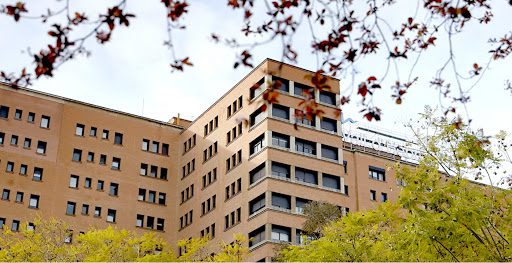
Website Address: https://www.esmo.org/career-development/oncology-fellowships/host-institutes/vall-d-hebron-institute-of-oncology-vall-d-hebron-hospital
Location: Centro Cellex, Carrer de Natzaret, 115-117, Horta-Guinardó, 08035 Barcelona, Spain
The Vall d’Hebron Institute of Oncology (VHIO), which was founded in 2006, is a preeminent comprehensive cancer centre of excellence. Its research physicians and scientists follow a purely translational research model, collaborating as multidisciplinary teams to accelerate and advance personalised and targeted cancer therapies. VHIO, with one of Spain’s most active cancer research programmes, is committed to fulfilling the promise of precision medicine in oncology by transforming the discovery of cancer into more efficient treatments and improved patient care procedures.
27. Standford Cancer Institute, California, United States
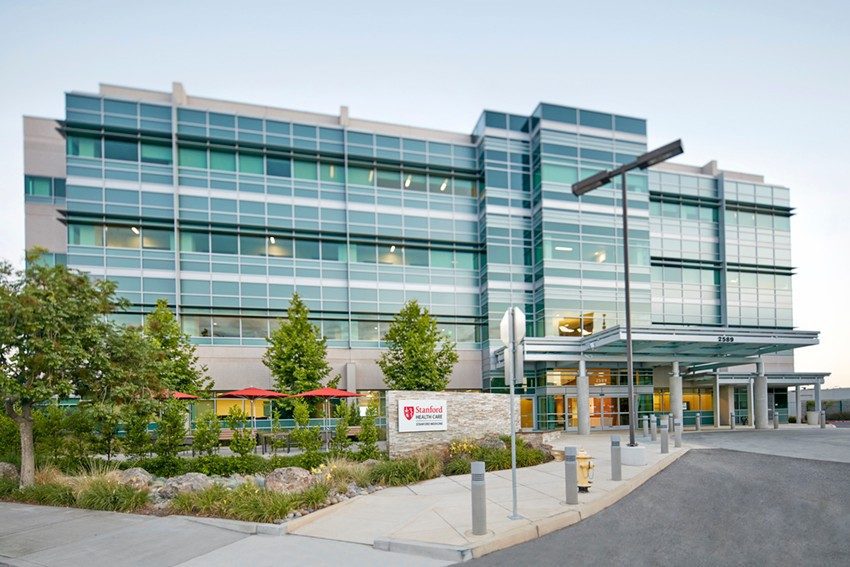
Website Address: https://med.stanford.edu/cancer.html
Location: 875 Blake Wilbur Dr, Stanford, CA 94305, United States
As the world’s premier cancer research organisation and a division of the National Institutes of Health, the National Cancer Institute has named the Stanford Cancer Institute a Comprehensive Cancer Centre.
As a Comprehensive Cancer Centre, Stanford Cancer Institute is recognised for upholding the highest standards of institutional support, scientific rigour, and coordination for the full range of cancer-related research, encompassing population-based, basic, translational, and clinical science.
The goal of the Institute is to support and coordinate the various cancer-related activities that are being carried out at Stanford University, Stanford Health Care, and Lucile Packard Children’s Hospital Stanford.
Its more than 450 members, who come from a variety of backgrounds, include doctors and scientists working together to better cancer therapies through research advancements.
Only 49 Comprehensive Cancer Centres nationwide have received the NCI designation, and Stanford Cancer Institute (SCI) is one of them. The SCI encourages a fresh way of looking at the most difficult issues in cancer research.
28. Oslo Comprehensive Cancer Centre, Oslo, Norway
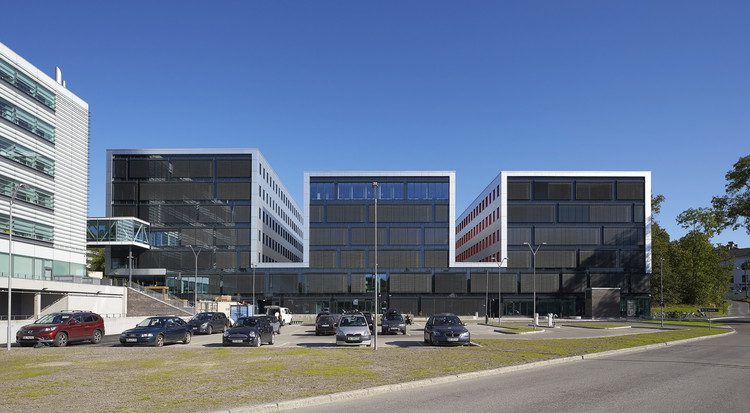
Website Address: https://www.ous-research.no/ous-ccc
Location: Ullernchausseen 64-66, 0379 Oslo, Norway
Since its founding in 1954, the Institute for Cancer Research has been a major player in the field of cancer research in Norway and around the world. The Institute employs about 320 people, including master’s students, and includes seven research divisions. Approximately 70% of the staff and initiatives are financed by outside sources.
The Institute has top-notch research groups in biochemistry, immunology, radiation biology, genetics, cell and tumour biology, and cancer prevention that are recognised worldwide. The Institute’s experts have closely collaborated with oncologists, pathologists, and cancer surgeons for over 30 years.
The Institute is engaged in both basic and translational cancer research involving experimental research on model organisms from various evolutionary levels as well as human material from all types of cells and tissues. The co-localization with a large cancer hospital fulfills the premises for advanced medical research across sciences, a necessity towards the goals of individualized diagnostics and treatment for cancer patients.
29. Mazumdar Shaw Narayana Cancer Centre, Bengaluru, India
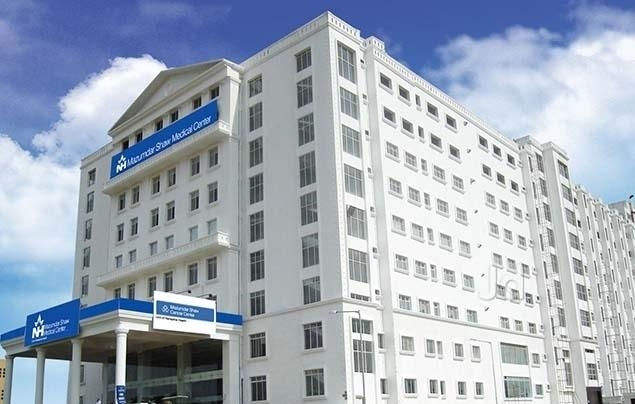
Website Address: https://www.narayanahealth.org/hospitals/bangalore/mazumdar-shaw-medical-center-bommasandra
Location: 29/P2,, 29/P2, Hosur Rd, Bommasandra Industrial Area, Bengaluru, Karnataka 560099
Mazumdar Shaw Cancer Centre located at Narayana Health City is a comprehensive cancer centre equipped with latest technology.
The guiding principle of MSCC is to provide world-class health services in cancer to the masses at a cost that is affordable to all.
The 607-bed facility cancer center is perhaps one of the largest cancer centers in the world with a unique commitment to provide world-class cancer care to everyone in need. MSCC is the largest comprehensive cancer center. It is an excellence-driven center that offers multidisciplinary cancer care with a personalized touch to patients from all corners of India, neighboring countries, and all parts of the world.
At Mazumdar Shaw Cancer Centre, a team of experts from surgical oncology, radiation oncology, medical oncology, radiology, pathology, nuclear medicine, and related disciplines come together in the Tumour Board meetings to discuss various cases and form a joint decision on the treatment plan.
All cancer patients are discussed in the tumor board and a copy of the decision is shared with the patient. All site-specific tumor boards take place on specific weekdays. This transpires into unbiased decision-making for the patient and is also the forum where all the national and international guidelines are discussed at length relating to that particular patient.
30. BLK Cancer Centre, New Delhi
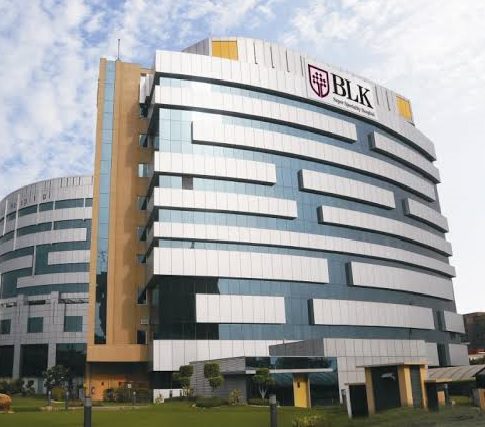
Website Address: https://www.blkmaxhospital.com/our-specialities/cancer-centre
Location: OPD 7, First Floor, Pusa Rd, Radha Soami Satsang, Rajendra Place, New Delhi, Delhi 110005
BLK Cancer Centre is one of the country’s premier cancer centres, providing comprehensive cancer prevention and treatment services.
The Centre is equipped with state-of-the-art technology, world-class facilities, and a highly experienced team of Surgical, Medical, and Radiation Oncologists who work in synergy to provide the best possible personalized care. Patients have access to the entire range of Cancer treatments, procedures, and specialists, many of whom are internationally recognized experts in their field.
With the use of advanced technologies, the centre is able to provide patients with the most up-to-date and best cancer care possible.
By combining latest equipment and facilities with the most recent developments in patient-focused care in a warm and supportive environment, BLK Cancer Centre has created comprehensive ways to prevent and cure cancer.
In order to guarantee the best possible care, surgical oncologists collaborate closely with radiologists, medical oncologists, reconstructive microvascular surgeons, and other healthcare professionals.
To make sure that patients receive the best care possible, the Centre continuously makes investments in cutting-edge technologies that have been demonstrated to enhance cancer detection and treatment. Patients can consult with all their doctors, many of whom are highly regarded worldwide authorities in their respective fields.
BLK Cancer Centre is also considered among the top cancer hospitals in India, majorly because of a few its State-Of-The-Art Facilities Technology, Comprehensive Patient Care, and Tumour Board.
31. Peter Maccallum Cancer Centre, Victoria, Australia
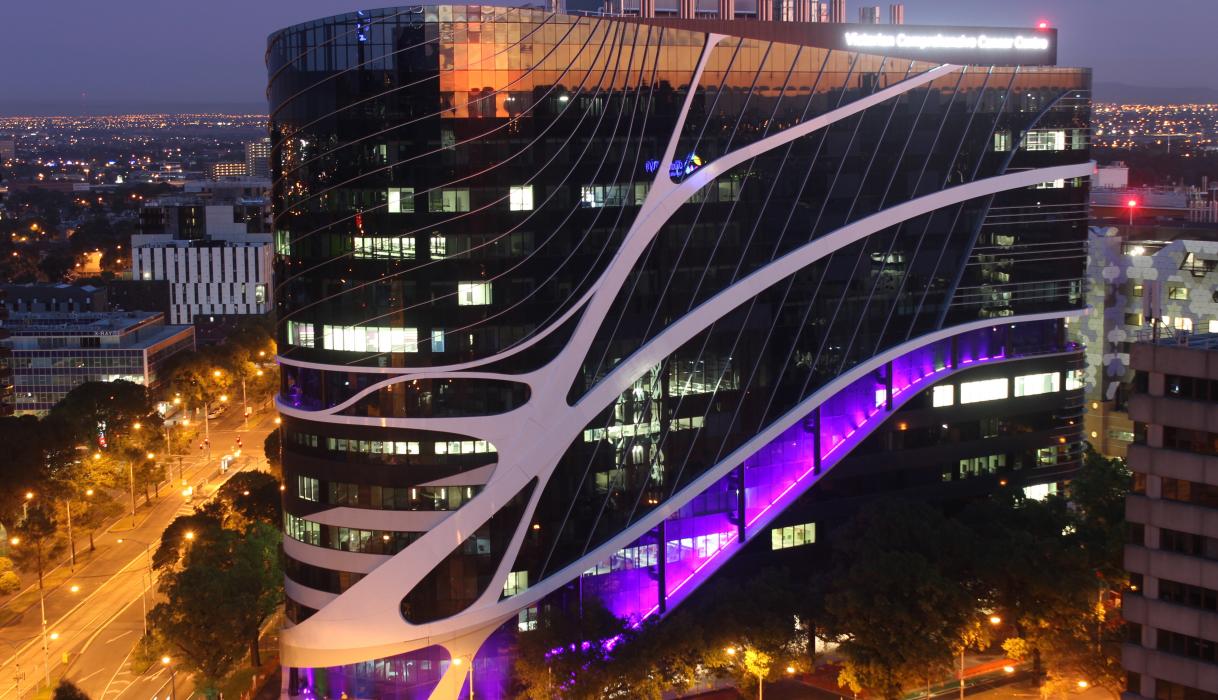
Website Address: https://www.petermac.org/
Location: 305 Grattan St, Melbourne VIC 3052, Australia
One of the top institutes for cancer research, training, and therapy in the world, Peter Mac is the only public hospital in Australia devoted entirely to the care of cancer patients. With more than 2,500 employees, including more than 580 laboratory and clinical researchers, its mission is to improve cancer care and treatment while also exploring potential cures.
Our cancer treatment and care services at our main center are delivered in partnership with The Royal Women’s Hospital and The Royal Melbourne Hospital – all co-located within easy distance of one another.
While the majority of our care services are provided at Peter Mac, patients may from time to time be referred to The Women’s and/or The Royal Melbourne Hospital for particular treatments.
32. James Cancer Hospital & Solove Research Institute, Columbus, OHIO, United States
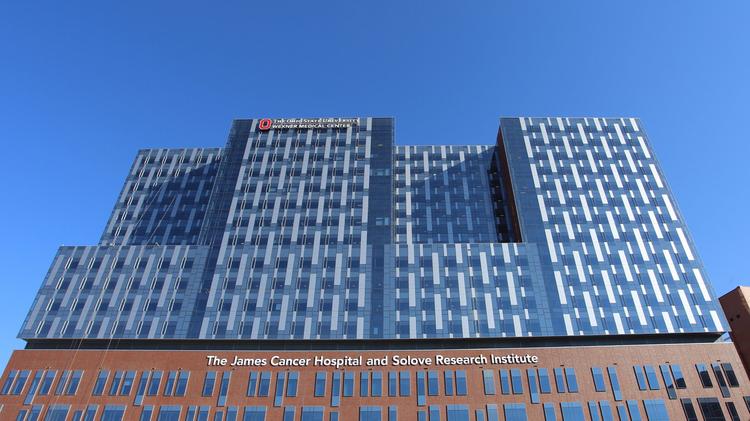
Website Address: https://cancer.osu.edu/locations/the-james-cancer-hospital-and-solove-research-institute
Location: 460 W 10th Ave, Columbus, OH 43210, United States
The mission of Arthur G. James Cancer Hospital and Richard J. Solove Research Institute is to eradicate cancer from its root. This is the driving force behind all they do in their quest to end cancer via cutting-edge, highly focused patient care via research.
The OSU – James cancer programme is the only one in the country that combines a freestanding cancer hospital on the campus of one of the biggest public universities in the country with a comprehensive cancer centre designated by the National Cancer Institute (NCI), a nationally ranked academic medical centre, and other supportive resources.
At Ohio State, 293 cancer researchers and their teams from 11 of our 15 colleges work collaboratively, across multiple disciplines, to improve the effectiveness of cancer prevention, diagnosis, and treatment.
33. Horizon Cancer Centre, Bumrungrad Hospital, Bangkok, Thailand
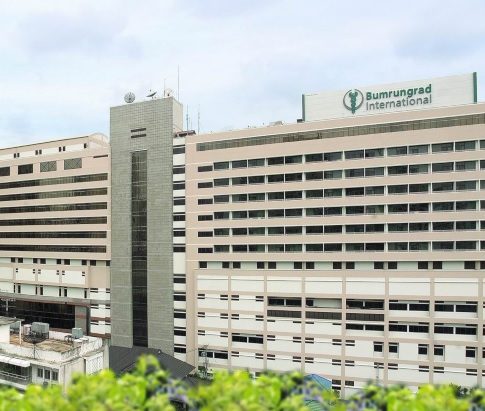
Location: PHW2+HX7, Chang Wat Bangkok, Vadhana, จังหวัด กรุงเทพมหานคร 10110, Thailand
The Horizon Regional Cancer Centre at Bumrungrad International Hospital in Bangkok, Thailand, offers comprehensive cancer care and treatment, including emotional support, nutritional support, pain management, diagnosis, treatment, evaluation of treatment plan, and close monitoring of potential recurrence.
1. Treatment of Cancer
- Chemotherapy
- Assessment of patient’s health and treatment planning
- Chemotherapy drug administration
- Targeted therapy
- Blood/platelet transfusion
- Radiation therapy
- Assessment of patient’s health and treatment planning
- Radiation therapy
- Cancer
- Keloids
- Non-cancerous conditions
- Volumetric-modulated arc therapy (VMAT)
- Brachytherapy
- Hematopoietic stem cell transplantation (HSCT)
- Assessment of patient’s health and treatment planning
- Hematopoietic stem cell transplantation to treat leukemia, lymphoma, aplastic anemia, and bone marrow cancer
- Peripheral blood stem cell transplantation (PBSCT)
- Bone marrow transplantation (BMT)
2. Cancer screening
- Mammogram
- Pap smear
- Colonoscopy
- Endoscopy
- Low-dose CT scan
3. Other services
- Testing for tumor markers and carrying out biopsies in a laboratory that meets international standards
- Care of colostomy
- Care of implanted venous access device (port-a-cath)
- Nutrition consultation
- Psychological support
- Palliative care of terminally ill patients
- Cancer support group
- Provide information and organize seminars about cancer
34. Dharamshila Narayana Cancer Hospital, New Delhi
Website Address: https://www.dharamshilacancerfoundation.org/
Location: Vasundhara Enclave, Near New Ashok Nagar Metro Station, New Delhi, Delhi 110096
Following a partnership with Narayana Health, Dharamshila Hospital and Research Centre (DHRC) is now known as Dharamshila Narayana Superspeciality Hospital (A unit of Dharamshila Cancer Foundation and Research Centre).
Situated within the Dharamshila Cancer Foundation and Research Centre, Dharamshila Narayana Superspeciality Hospital is a state-of-the-art multispeciality facility featuring top-notch medical facilities and a team of highly skilled superspecialists who offer comprehensive medical care across multiple specialties, including cardiology, neurology, oncology, urology, gastroenterology, and orthopaedics.
A long legacy of trust, more than two decades of experience, and Innovative Treatment Approaches have made our hospital a leading and preferred destination for medical treatment in India.
Accredited for the Diplomate National Board (DNB) Programme in medical and surgical oncology, Dharamshila Narayana is the first institution in India to receive this designation from the National Board of Examination (NBE).
35. Mount Elizabeth Hospital in Singapore
Website Address: https://www.mountelizabeth.com.sg/
Location: 3 Mount Elizabeth, Singapore 228510
Mount Elizabeth Hospital in Singapore is a remarkable place that helps people with cancer. This is one of the best cancer hospitals in the world that has an expert team of oncologists.
They are knowledgeable about cancer treatment options such as medications, surgery, and radiation. The hospital uses advanced technology to give the best treatment possible. One example is the Cyberknife, a super precise and painless way to treat cancer with radiation. This special treatment gives hope to people worldwide, even for conditions that might have seemed impossible to treat before.
36. Mayo Clinic – Rochester
Website Address: https://www.mayoclinic.org/patient-visitor-guide/minnesota
Location: 200 First St. SW
Rochester, MN 55905
Renowned as one of the best cancer hospitals in the world, Mayo Clinic employs a multidisciplinary approach, integrating specialists in medical, surgical, radiation, hematological, and pediatric oncology to ensure comprehensive care for patients facing various types of cancers. The clinic provides a variety of treatment options, including surgery, radiation, chemotherapy, targeted therapy, and immunotherapy. It is recognized for its dedication to continuous cancer research, which includes nine main research programs aimed at discovering medical solutions for cancer patients.
37. The Royal Marsden Hospital – London
Location: 203 Fulham Rd., London SW3 6JJ, United Kingdom
The Royal Marsden Hospital in London is a special place that helps people with cancer. It is located in London and Surrey and has received an ‘Outstanding’ rating from the Care Quality Commission, indicating that it provides excellent patient care. The hospital provides comprehensive cancer therapy, taking into account all that a patient may require. What’s even more incredible is that they have a dedicated center for international patients. This center employs people who can speak multiple languages, help with paperwork, and ensure that everything goes well. So, if someone searching for the best cancer hospitals in the world, The Royal Marsden is ready to welcome them and provide excellent support.
38. Cleveland Clinic, United States
Website Address: https://my.clevelandclinic.org/
Location: Carnegie Ave, Cleveland, OH 44103, United States
Cleveland Clinic in the United States is a big hospital known for its excellent cancer care. It’s on our list of the 40+ best cancer hospitals in the world for a reason. What makes it stand out is that it has about 700 doctors, specialists, and nurses who are experts in helping people with cancer. The clinic is part of the Case Comprehensive Cancer Centre (Case CCC) network, which means it collaborates with other top-notch centers. One interesting aspect of the Cleveland Clinic is that they conduct clinical studies for cancer treatment. These trials are similar to experiments in which new and improved methods of cancer care are developed.
39. National Cancer Center Hospital, Japan
Website Address: https://www.ncc.go.jp/en/index.html
Location: 5 Chome-1-1 Tsukiji, Chuo City, Tokyo 104-0045, Japan
The National Cancer Center Hospital in Japan started helping patients in 1962 and has grown to be quite big. Around 4,138 people work there, and they have 1,003 beds to take care of patients. Every year, around 331,268 people are admitted to hospitals for medical treatment. In addition, approximately 2,341 people visit the screening center to be checked for cancer. The hospital is like a support hub, with many dedicated staff members working together to help cancer patients.
40. Bumrungrad International Hospital, Bangkok
Website Address: https://www.bumrungrad.com/en
Location: 33 Soi Sukhumvit 3, Khlong Toei Nuea, Watthana, Bangkok 10110, Thailand
Bumrungrad International Hospital in Bangkok serves many people from throughout the world. It is one of the largest and best cancer hospitals in the world as well as in Southeast Asia, caring for over 520,000 international patients each year. The hospital features a specific facility called the Horizon Regional Cancer Centre, where they give comprehensive cancer care. They even perform a procedure known as hematopoietic stem cell transplantation on patients.
An Inspiring Story Of Cancer Survival In China
Fifteen years ago, if someone had told me that I’d be scrolling through Facebook in a hotel bed in Shanghai, China, after seven weeks of intense care and treatment, I wouldn’t have believed them.
Kelsey and I faced many challenges during our seven-week cancer treatment in China because of the language barrier and unfamiliar surroundings. However, our decision paid off when a recent scan revealed the greatest care in 11 years. Though tired, I felt happy and sensed a positive change. It seemed like we were on the right track.
I’m thankful for everyone’s help – the caring nurses and experienced doctors. For anyone battling cancer, I would suggest – taking a chance, just like we did because you never know where it might lead you.
How Can Cancer Warriors Travel Safely To Best Cancer Hospitals In The World?
Cancer warriors can safely travel to the best cancer hospitals worldwide, thanks to medical flights designed for their needs. These flights offer the necessary amenities to care for patients during the journey. Cancer sufferers no longer have to worry about the restrictions of normal flights’ medical facilities because of new and advanced technology. Depending on the patient’s condition, Medical Air Service offers a variety of medical flight options, including specialist air ambulances and commercial flights with a medical escort.
We hope that this blog has helped you acquire helpful information to find the best cancer hospitals in the world. However, if you want to make this process simple and more beneficial for cancer survival, reach out to us or mail us – info@cancerfax.com. Our knowledgeable team can help you find the best hospital and cancer specialist for a speedy recovery.


